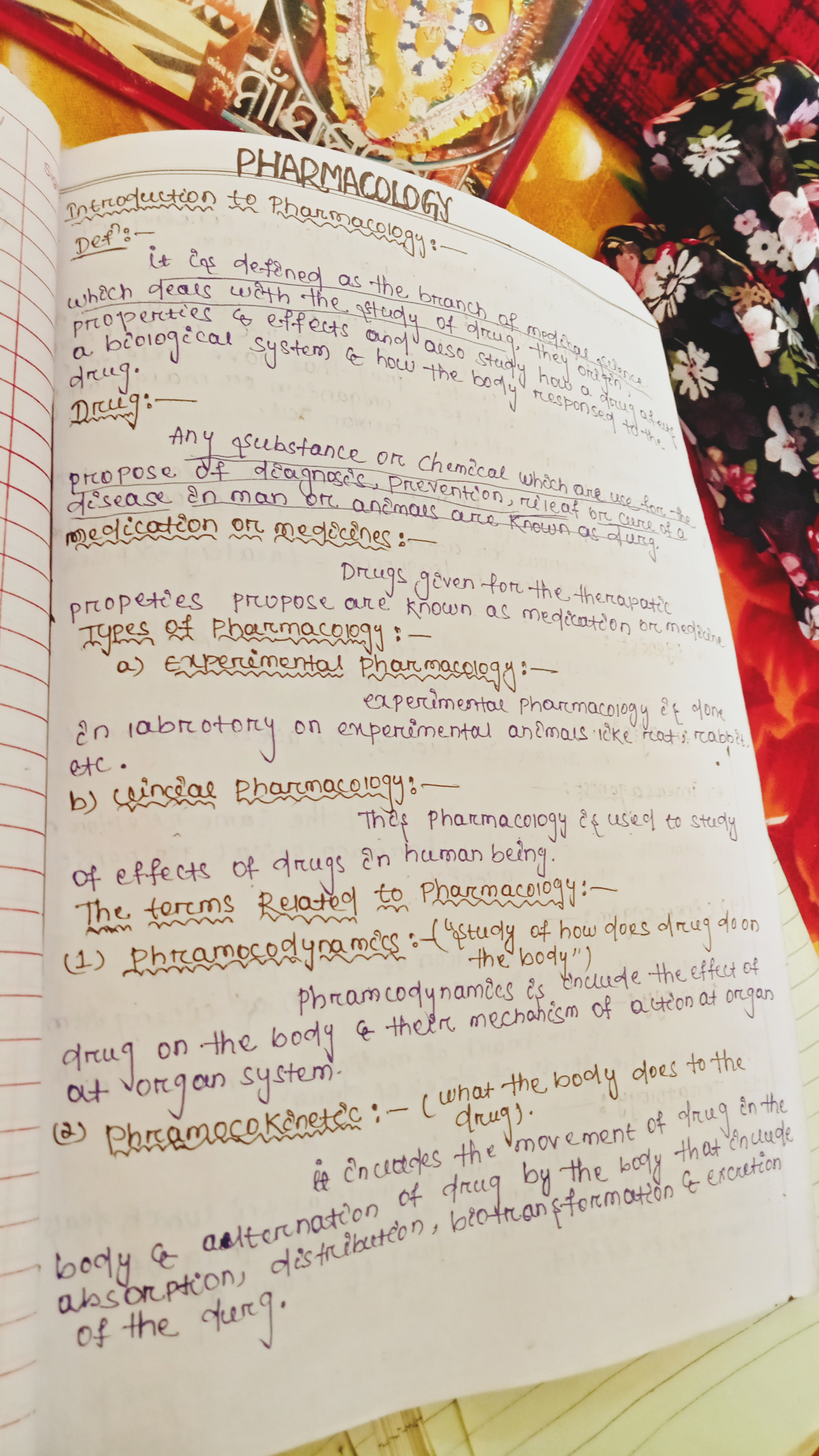What is pharmacology, and what are its different types and related terms?

Understand the Problem
The question relates to understanding the subject of pharmacology, including its definition, types, and associated terms. It aims to clarify the principles of how drugs interact with biological systems.
Answer
Pharmacology studies drug interactions. Key areas: pharmacodynamics and pharmacokinetics.
Pharmacology is the study of how drugs interact with biological systems. The key areas are pharmacodynamics (how drugs affect the body) and pharmacokinetics (how the body affects drugs). Related terms include experimental pharmacology (studying drugs in animals) and clinical pharmacology (studying drugs in humans).
Answer for screen readers
Pharmacology is the study of how drugs interact with biological systems. The key areas are pharmacodynamics (how drugs affect the body) and pharmacokinetics (how the body affects drugs). Related terms include experimental pharmacology (studying drugs in animals) and clinical pharmacology (studying drugs in humans).
More Information
Pharmacodynamics explores the relationship between drug concentration and effect, while pharmacokinetics involves the absorption, distribution, metabolism, and excretion of drugs.
Tips
A common mistake is confusing pharmacodynamics with pharmacokinetics. Remember, dynamics pertains to drug effects on the body, and kinetics deals with drug processing by the body.
Sources
- Pharmacology | Definition, Branches & Importance - Lesson - study.com
- What is Pharmacology? - Long School of Medicine - lsom.uthscsa.edu
- Pharmacology | A Concise Introduction - Wikipedia - en.wikipedia.org
AI-generated content may contain errors. Please verify critical information